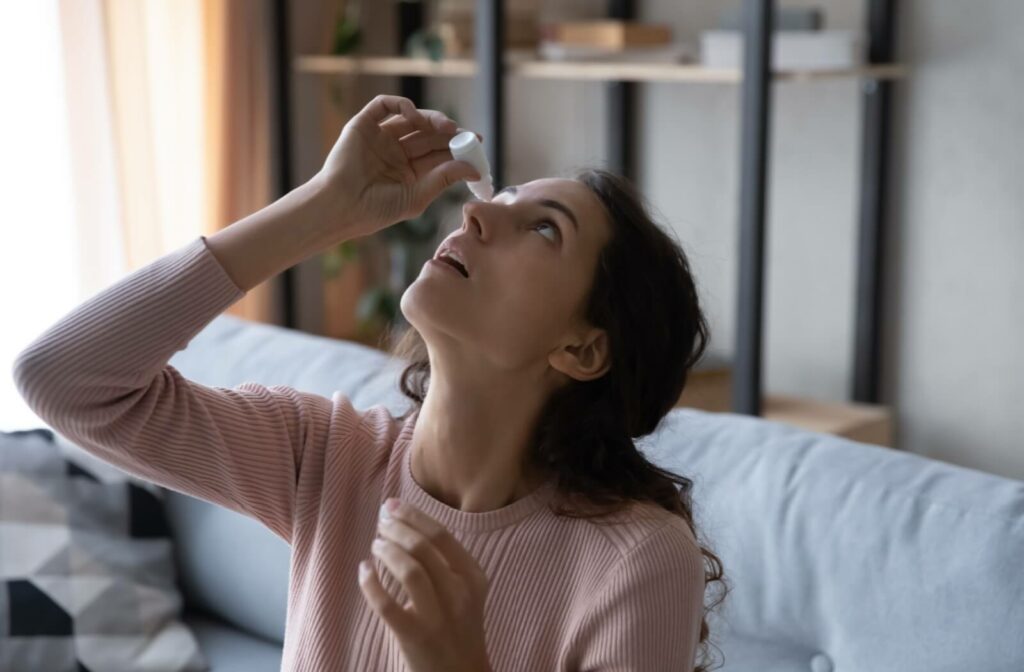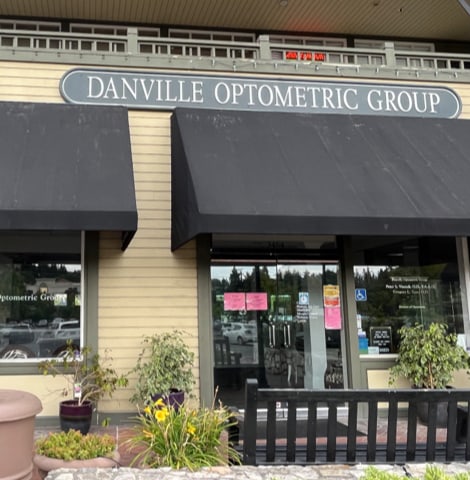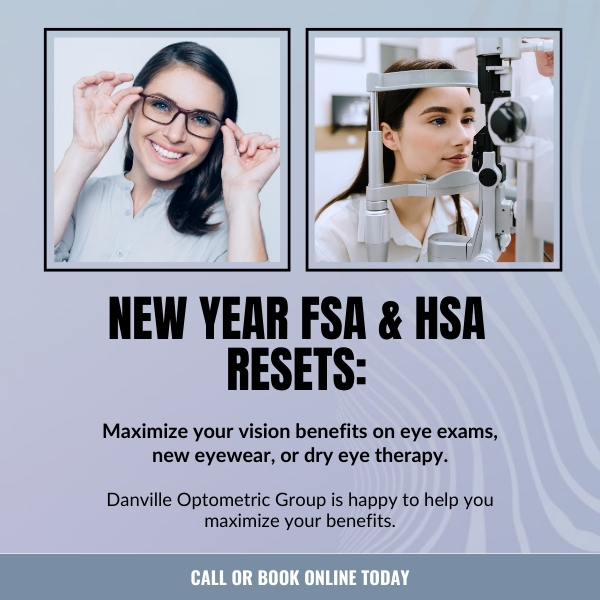Ever noticed your vision becoming blurry, especially after spending hours staring at a screen or during a dry, windy day? You might be surprised to learn that dry eyes could be the culprit.
While it’s common to think of dry eyes as just a minor irritation, they can actually have a significant impact on your vision. Dry eyes can cause blurry vision, making daily activities challenging and frustrating.
What Is Dry Eye Syndrome?
Dry eye syndrome is a common condition characterized by the inadequate production of tears. These tears are not only water. They are comprised of a mixture of:
- Water
- Oils
- Mucus
This mixture keeps the surface of the eyes lubricated, free from dust and debris, and clear of microorganisms that could lead to infections.
Tears play a crucial role in ensuring the health of the cornea and the overall front surface of the eye, contributing significantly to clear vision.
When the eyes fail to produce enough tears or the tears evaporate too quickly, it can result in the eyes becoming dry, itchy, and uncomfortable.
The lack of proper lubrication can lead to symptoms such as irritation, a gritty or scratchy feeling in the eye, redness, and inflammation.
Moreover, dry eye syndrome can reduce visual acuity, leading to instances of blurry vision that can affect day-to-day activities.
What Causes Dry Eye?
Dry eye can be caused by factors ranging from environmental conditions to medical issues. Here are some common causes:
Environmental Factors
Living in a dry, dusty, or windy environment can aggravate dry eyes. Air conditioning, heating, and prolonged screen time can also contribute to this condition.
Age & Hormonal Changes
Aging naturally reduces tear production. Hormonal changes, especially in women during menopause, can also cause dry eyes.
Medical Conditions
Certain medical conditions like diabetes, rheumatoid arthritis, and thyroid disorders can affect tear production. Medications for high blood pressure, depression, and allergies can also cause dry eyes.
How Dry Eye Affects Vision
Tear Film Instability
The tear film covers the surface of the eye. When it’s unstable, it can lead to blurry vision. Tears evaporate too quickly, leaving dry spots that cause your vision to decrease. Tear film instability is a key factor in the core mechanism underlying dry eye.
Surface Damage
Chronic dry eye can lead to scarring and a decrease in visual acuity. Tear film instability can disrupt our blinking and eventually damage the corneal surface. This damage scatters light, blurring your vision.
Inflammation
Inflammation from dry eyes can cause the cornea to swell, leading to distorted vision. This swelling impacts how light is focused on the retina, causing blurred or fluctuating vision.
Treatment Options for Dry Eye

At-Home Treatments
- Over-the-Counter Eye Drops: For immediate relief from dry eyes, artificial tears are a go-to solution. Opt for preservative-free varieties to minimize the risk of additional irritation, as preservatives can sometimes exacerbate dry eye symptoms.
- Warm Compresses: A simple yet effective way to alleviate dry eye discomfort is by applying a warm compress to your eyes. This gentle heat helps to unclog the oil glands in your eyelids, which can improve the quality of your tears and provide lasting relief.
- Hydration: Maintaining adequate hydration levels is key in supporting healthy tear production. Ensure you’re drinking plenty of water throughout the day. This not only benefits your overall health but also helps keep your eyes comfortably lubricated.
Professional Treatments
There are several treatment methods to help stabilize your tear film and keep your eyes moisturized:
- Blephex: A device used by eye care professionals to clean the eyelid margins, reducing inflammation and improving tear production.
- Lacrisert: A small insert placed in the lower eyelid. It slowly releases lubrication throughout the day.
- Lid Debridement: A procedure to remove debris and bacteria from the eyelid margins, improving tear quality.
- Meibomian Gland Expression: A treatment to express the oil glands in the eyelids and improve tear quality.
- Punctal Plugs: Tiny plugs inserted into the tear ducts to reduce tear drainage and keep the eyes more lubricated.
- IPL Therapy: Intense Pulsed Light (IPL) therapy can reduce inflammation and improve oil production in the eyelids.
- Tearcare: A device that applies heat and gentle pressure to the eyelids, improving tear quality and reducing dry eye symptoms.
Preventing Blurry Vision from Dry Eye
Sometimes, environmental factors cause dry eyes. Using humidifiers at home can help introduce moisture to dry air. Excessive exposure to smoke can also cause dry eyes. Both cigarette smoke and smog caused by air pollution can irritate the eyes, so using a high-quality air-filter at home can help manage and control dry eye symptoms.
You should also avoid directing fans to your face or staring at screens for too long.
Proper hydration and drinking enough water helps maintain tear production and overall eye health. Getting sufficient sleep can also help you find relief.
Persistent and recurring symptoms may be signs that there are underlying problems with your eye health. Routine eye exams are important for early detection and treatment of dry eyes. We recommend yearly check-ups to regularly detect and address underlying causes of dry eye syndrome and other eye conditions.
Dry Eye Clinic in Danville
At Danville Optometric Group, we’re committed to providing personalized care to address your specific needs. If you’re experiencing symptoms of dry eye or blurry vision, don’t hesitate to schedule an eye exam with us.
We’re here to listen to your concerns and offer the best treatment plans to keep your eyes healthy and your vision clear.













